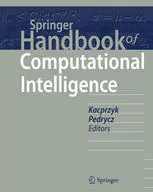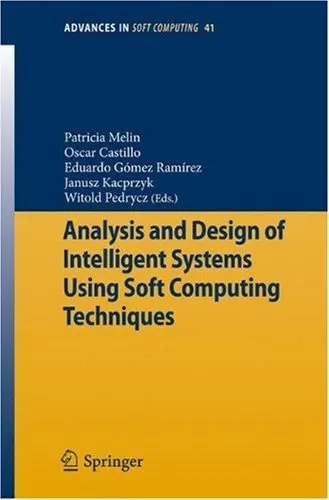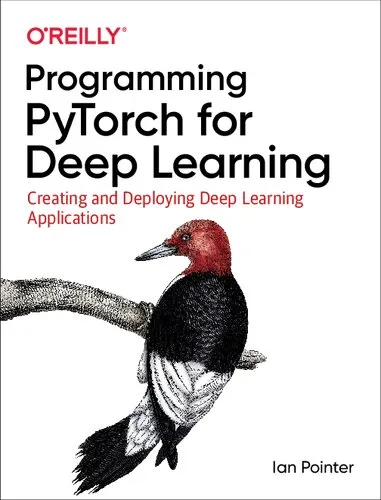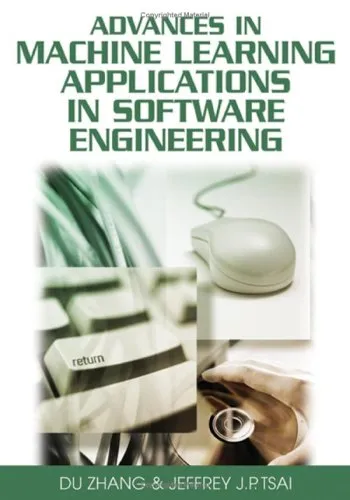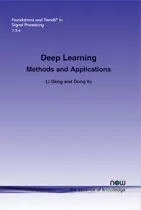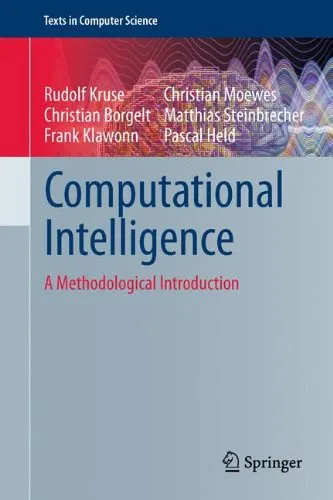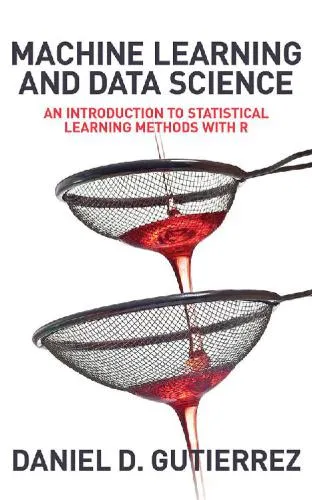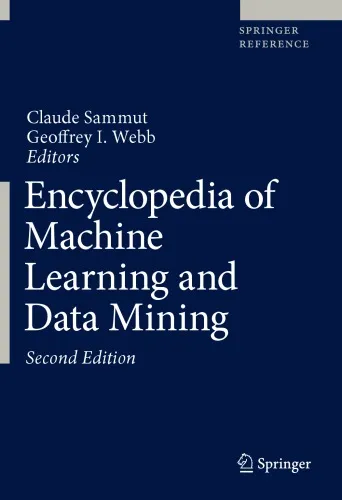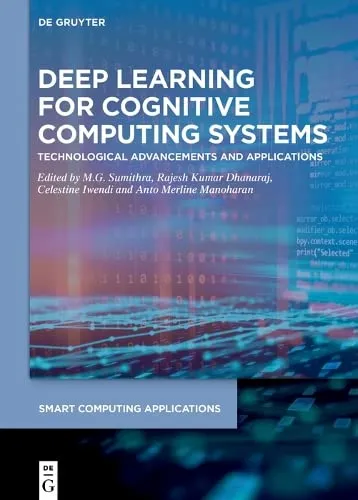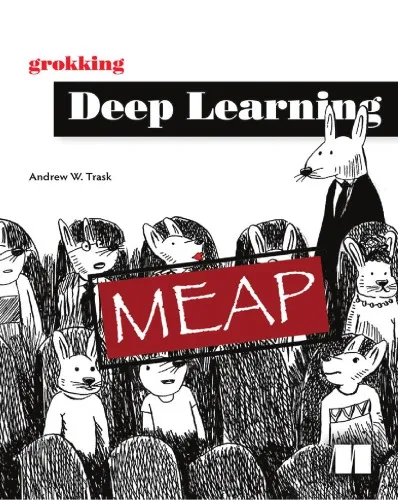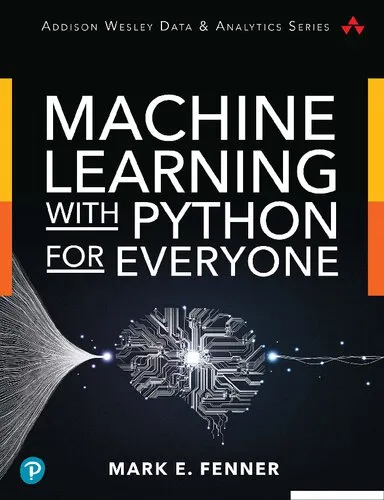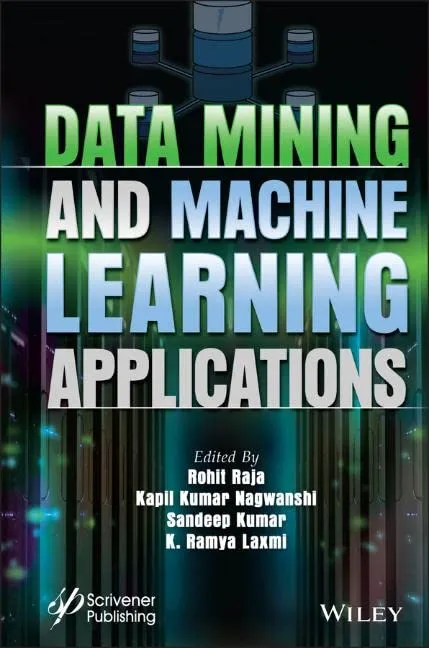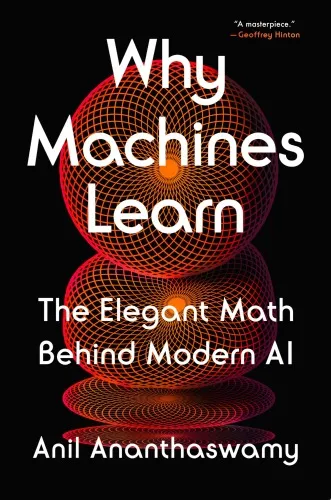Springer Handbook of Computational Intelligence
4.5
بر اساس نظر کاربران

شما میتونید سوالاتتون در باره کتاب رو از هوش مصنوعیش بعد از ورود بپرسید
هر دانلود یا پرسش از هوش مصنوعی 2 امتیاز لازم دارد، برای بدست آوردن امتیاز رایگان، به صفحه ی راهنمای امتیازات سر بزنید و یک سری کار ارزشمند انجام بدینکتاب های مرتبط:
معرفی کتاب
کتاب "Springer Handbook of Computational Intelligence" یکی از منابع جامع و معتبر در زمینه هوش محاسباتی است. این کتاب به ویرایش Janusz Kacprzyk و Witold Pedrycz شامل مجموعهای از مقالات و درسنامههای تخصصی است که به جزییات کامل و کاربردهای مختلف هوش محاسباتی میپردازد.
خلاصهای از کتاب
این هندبوک به عنوان یکی از پرمخاطبترین و جامعترین منبعهای آموزشی و پژوهشی در حوزه هوش محاسباتی به شناخته میشود. در این کتاب، مباحث پایهای مانند neural networks، fuzzy systems، evolutionary algorithms و hybrid systems به تفضیل بررسی میشود. هدف از این کتاب، ارائه یک چشمانداز کلی از تکنیکها و رویکردهای مختلف در هوش محاسباتی و مطالعه کاربردهای آنها در مسائل پیچیده و چندبعدی است.
نکات کلیدی
- مبانی و تاریخچه توسعه تکنیکهای هوش محاسباتی
- رویکردهای نوین و پیشرفته در neural networks و کاربردهای آنها
- استفاده از fuzzy systems برای مدلسازی عدم قطعیت
- بررسی و تحلیل evolutionary algorithms و کارکردهای تطبیقی آنها
- معرفی hybrid systems و ترکیب مزایای مختلف رویکردهای محاسباتی
جملات معروف از کتاب
هوش محاسباتی فرصتی برای دستیابی به راهحلهای نوآورانه و منعطف در مسائل پیچیده به ارمغان میآورد.
اهمیت کتاب
این کتاب به عنوان یکی از مراجع پایهای و ضروری برای محققان و دانشجویان علاقهمند به حوزههای مختلف هوش مصنوعی و محاسبات، ضروری به شمار میرود. نه تنها مباحث تئوریک عمیقی را پوشش میدهد بلکه کاربردهای عملی و روشهای پیادهسازی در دنیای واقعی را نیز مطرح میکند. تأثیر این کتاب در توسعه برنامههای آموزشی و تحقیقاتی گوناگون بسیار قابل توجه است و به دانشجویان امکان درک سریع و جامع از مفاهیم پیچیده هوش محاسباتی را فراهم میکند.
Introduction
The "Springer Handbook of Computational Intelligence" serves as a comprehensive and authoritative reference on the wide array of topics encompassed by computational intelligence. Edited by renowned experts, Janusz Kacprzyk and Witold Pedrycz, this handbook is an invaluable resource for professionals, researchers, and students seeking to understand the dynamic field of computational intelligence. The book is an extensive compendium of theories, methodologies, and applications, providing both foundational knowledge and insights into advanced concepts.
Detailed Summary of the Book
The handbook meticulously explores various domains within computational intelligence, addressing its theoretical underpinnings, methodologies, and real-world applications. It is organized into distinct sections, each dedicated to subfields such as neural networks, fuzzy systems, evolutionary algorithms, and hybrid systems. Neural networks are discussed in depth, covering both traditional architectures and burgeoning areas like deep learning. Detailed expositions on fuzzy systems provide insights into handling uncertainty and imprecision, critical in fields like control systems and decision making. The section on evolutionary algorithms delves into optimization techniques inspired by natural evolution, presenting applications across optimization and machine learning domains. Furthermore, the handbook highlights hybrid systems, showcasing how combinations of different computational intelligence methods can lead to more robust and adaptable solutions. Throughout the book, specialized chapters focus on various applications, including robotics, data mining, bioinformatics, and cognitive computing, illustrating the wide-reaching impact and utility of computational intelligence technologies today.
Key Takeaways
- Comprehensive coverage of computational intelligence, including foundational concepts and advanced techniques.
- Insights into neural networks, fuzzy logic, and evolutionary computing, with practical applications across diverse fields.
- Contributions from leading experts provide authoritative perspectives on current trends and future directions in computational intelligence.
- A valuable resource for both seasoned practitioners and newcomers to the domain, facilitating a deeper understanding of complex systems.
- The book emphasizes the integration and synergetic effects of hybrid systems for optimizing performance in computational tasks.
Famous Quotes from the Book
The essence of computational intelligence is its ability to adapt and learn in response to an ever-changing environment, leveraging various techniques to simulate intelligent behavior.
By fusing methodologies such as neural networks, fuzzy systems, and evolutionary algorithms, we can address complex real-world problems more effectively.
Why This Book Matters
In today's fast-paced technological landscape, understanding computational intelligence is crucial for harnessing the power of intelligent systems. This handbook stands out as an essential compendium due to its breadth and depth, bridging the gap between theoretical exploration and practical application. Its relevance is underscored by the growing need for intelligent solutions that can adapt to and learn from a vast array of data generated in various domains. By providing a robust foundation and exploring cutting-edge advancements, the book empowers readers to innovate and contribute to the evolution of computational intelligence. Moreover, as artificial intelligence and machine learning continue to evolve, this handbook provides the necessary context and insights to navigate and influence this transformative field. It serves not only as a guide for academic inquiry but also as a practical toolkit for professionals seeking to implement advanced computational techniques in real-world scenarios.
دانلود رایگان مستقیم
شما میتونید سوالاتتون در باره کتاب رو از هوش مصنوعیش بعد از ورود بپرسید
دسترسی به کتابها از طریق پلتفرمهای قانونی و کتابخانههای عمومی نه تنها از حقوق نویسندگان و ناشران حمایت میکند، بلکه به پایداری فرهنگ کتابخوانی نیز کمک میرساند. پیش از دانلود، لحظهای به بررسی این گزینهها فکر کنید.
این کتاب رو در پلتفرم های دیگه ببینید
WorldCat به شما کمک میکنه تا کتاب ها رو در کتابخانه های سراسر دنیا پیدا کنید
امتیازها، نظرات تخصصی و صحبت ها درباره کتاب را در Goodreads ببینید
کتابهای کمیاب یا دست دوم را در AbeBooks پیدا کنید و بخرید
1602
بازدید4.5
امتیاز0
نظر98%
رضایتنظرات:
4.5
بر اساس 0 نظر کاربران
Questions & Answers
Ask questions about this book or help others by answering
No questions yet. Be the first to ask!
